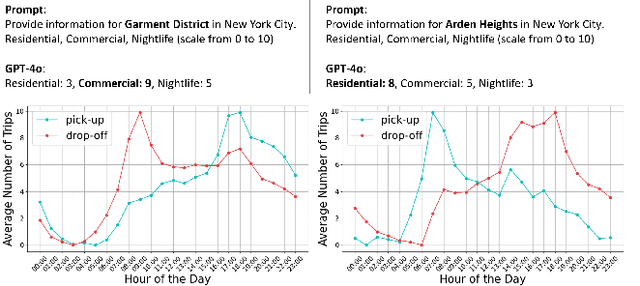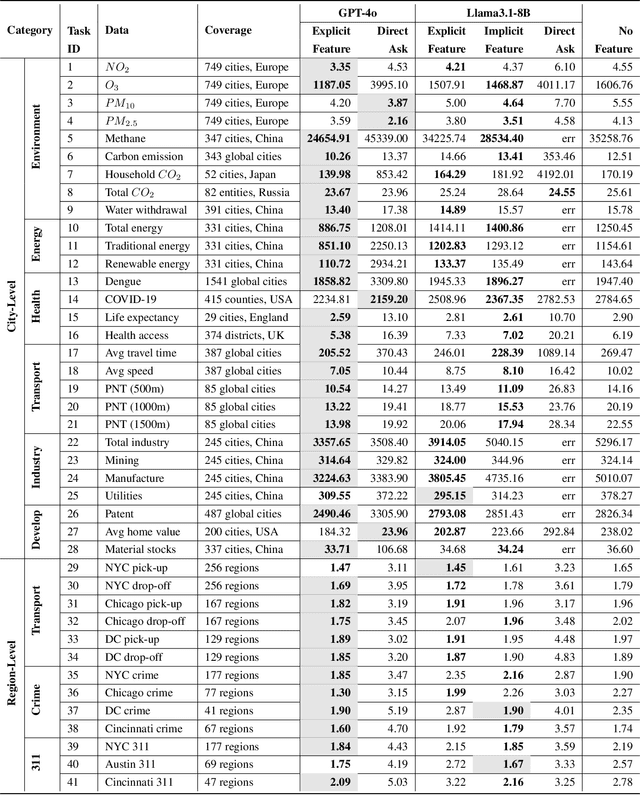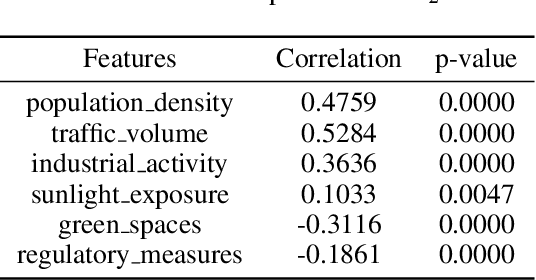What can LLM tell us about cities?
Paper and Code
Nov 25, 2024



This study explores the capabilities of large language models (LLMs) in providing knowledge about cities and regions on a global scale. We employ two methods: directly querying the LLM for target variable values and extracting explicit and implicit features from the LLM correlated with the target variable. Our experiments reveal that LLMs embed a broad but varying degree of knowledge across global cities, with ML models trained on LLM-derived features consistently leading to improved predictive accuracy. Additionally, we observe that LLMs demonstrate a certain level of knowledge across global cities on all continents, but it is evident when they lack knowledge, as they tend to generate generic or random outputs for unfamiliar tasks. These findings suggest that LLMs can offer new opportunities for data-driven decision-making in the study of cities.
 Add to Chrome
Add to Chrome Add to Firefox
Add to Firefox Add to Edge
Add to Edge